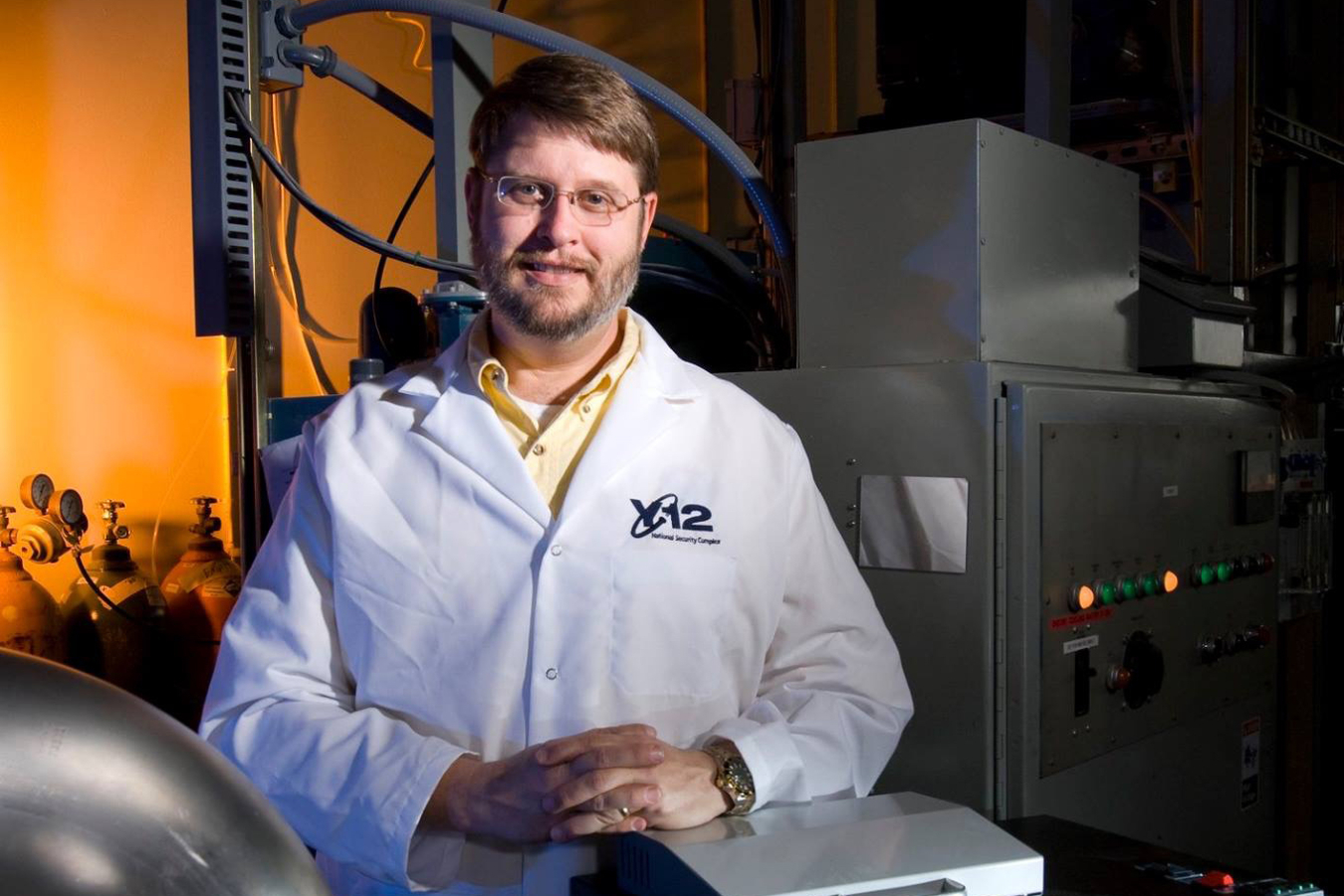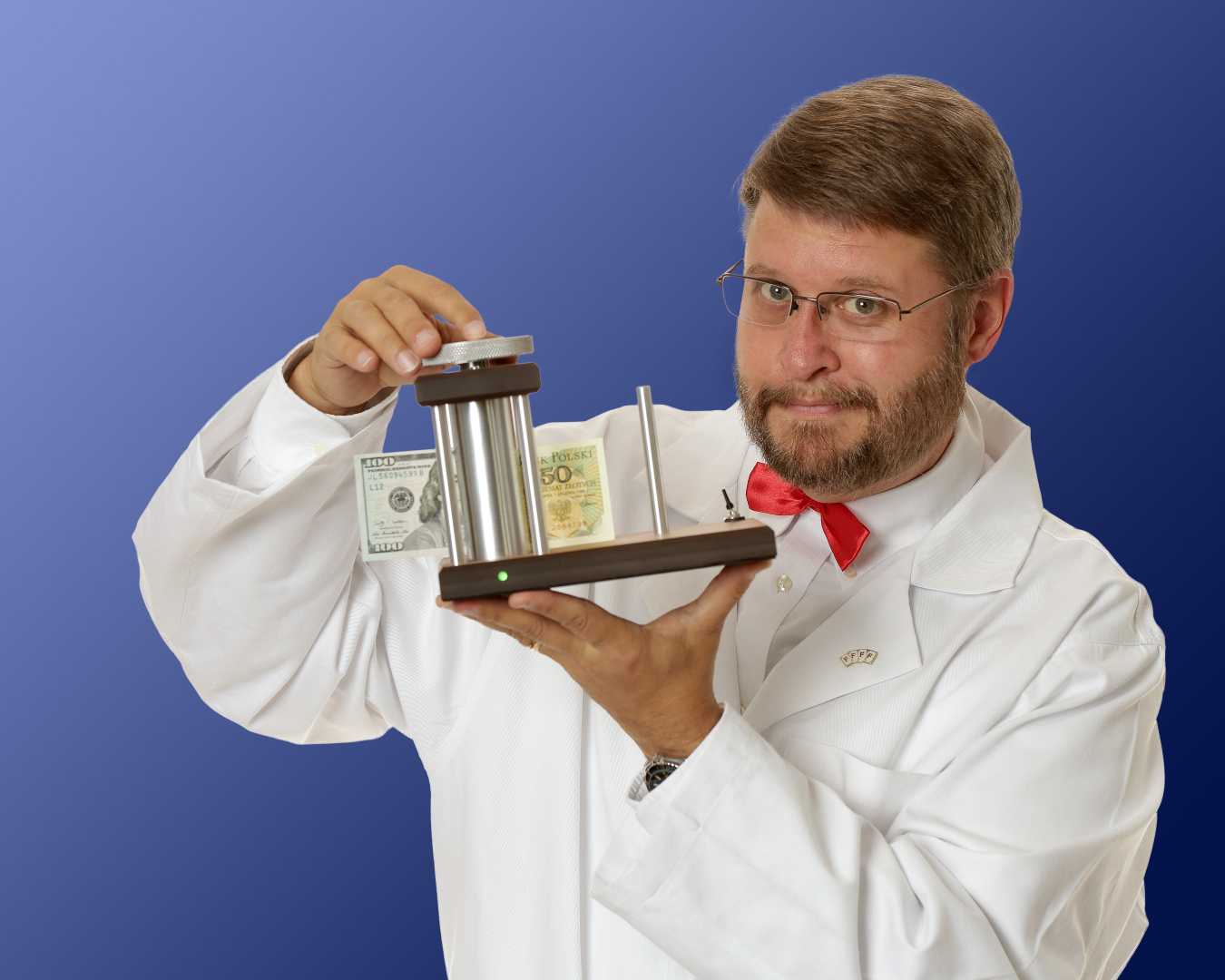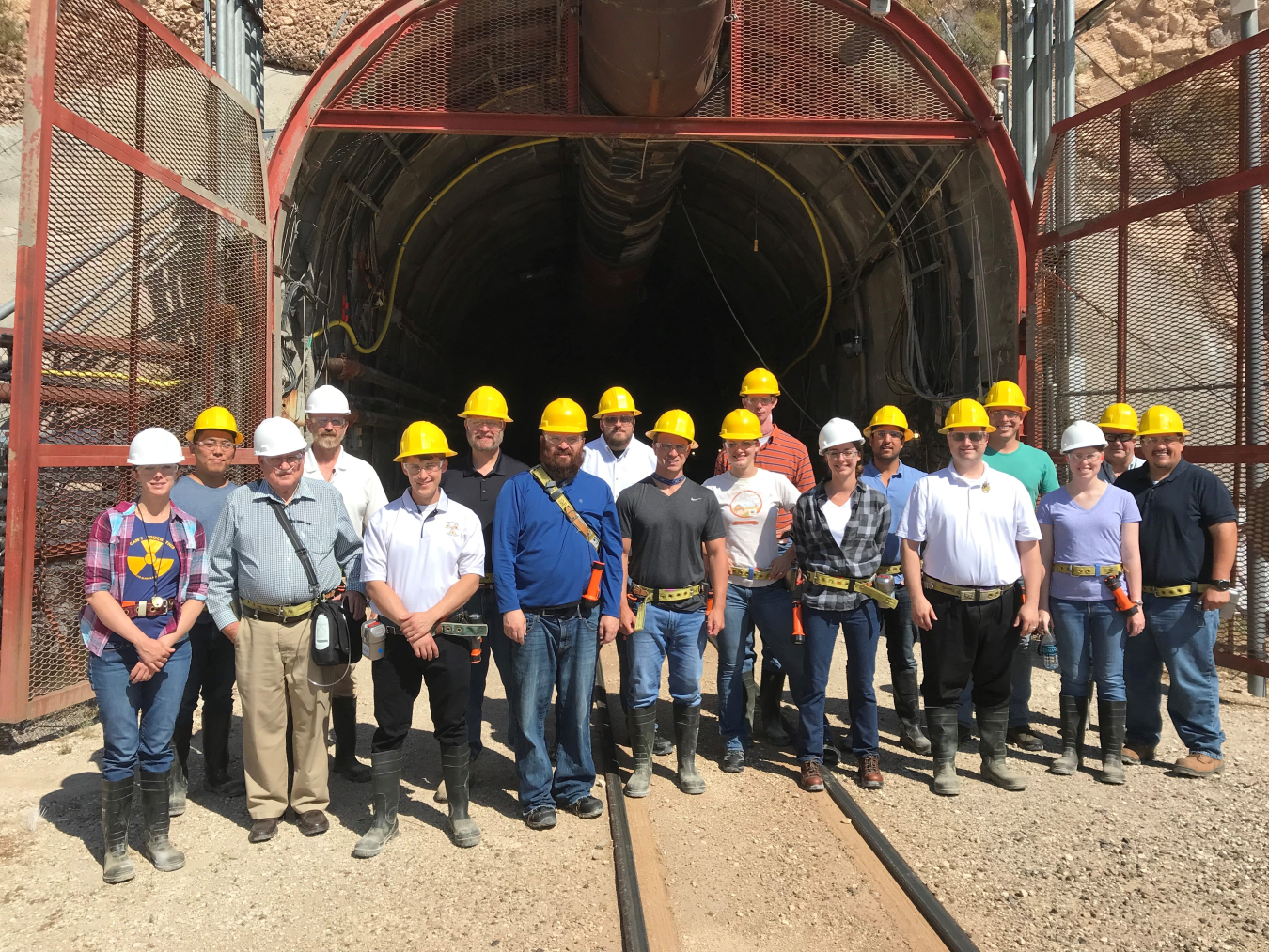What some members of the NNSA family accomplish in their spare time is truly unexpected.
National Nuclear Security Administration
June 28, 2019
Being part of the Nuclear Security Enterprise takes skills, smarts, and determination. From research scientists developing innovative new technologies to administrative professionals organizing day-to-day operations, it’s no surprise that our workforce is filled with impressive people. What some members of the NNSA family accomplish in their spare time, however, is truly unexpected. Ed Ripley is among the highly valued contributors who enable NNSA’s missions. He is a scientist and nuclear/metallurgical engineer in technology development at Y-12 National Security Complex in Oak Ridge, Tennessee. Mr. Ripley is also quite talented.
What is your hidden talent?
It is not very hidden. I am a magician and this year my magic was seen by more than 15 million people on television, at a competition in South Korea and all across the United States.
I was recently featured on Penn & Teller’s “Fool Us,” and I was one of five close-up magicians to represent North America at the International Federation of Magic Societies World Championships of Magic in Busan, South Korea, last summer. I have also developed magic for and consulted with many of the top magicians in the world.

How did you get into that hobby?
As a child I was interested in magic. Bill Bixby was on television as “The Magician.” He lived on a customized Boeing 720, drove a corvette, and was just cool. Doug Henning was on Broadway with his “World of Magic,” and his clothes were funky and his hair was long. He did not look like a typical magician, and he was cool, too. I loved the idea that they could do things that seemed like they had superpowers. I wanted to be just like them.
My grandmother knew I was very interested in magic, and on my 10th birthday, she took me to Bob Hutchings Magic Shack in Jacksonville, Florida. She gave me a $100 bill, and let me choose whatever I wanted. I bought linking rings, a cups and balls set, and a book titled, Modern Coin Magic. In those days, magic was hard to find. It was a closely guarded secret. There was no internet and the only source of knowledge was books. I worked on those classic magic effects until I perfected them. That was the start of a great hobby that has literally taken me around the world.
What is your creative process?
I love my job as a scientist and engineer. As a scientist, I scrupulously tell the truth. I accurately convey the facts about a process or system and help others understand it.
However, as a magician, I will unscrupulously lie, deceive, and mislead my audience for the purpose of entertainment. Performing magic teaches me a lot about psychology, personalities, and how people think. It is nice to have that part of my life where I can creatively express myself and create situations where I can exploit the loopholes in the laws of physics.
I perform the classics of magic, but I like to add my own personal twists. I inject new methods, techniques, and my own personality into the effects so they feel fresh and exciting. I have a lot of friends who are professional magicians or work in show business. When I start working on a trick, I bounce ideas off them. In fact, the trick that was on Penn & Teller is the result of me showing my trick to Shawn Farquahar, a Canadian magician, who remarked that the trick was great, but I needed to take it apart and hand out the pieces. I thought that was impossible, but I later realized he was right—the effect would be much stronger if I could take it apart and have it inspected. I spent the next two years figuring out how to do just that. The result is what you see on the Penn & Teller show, and it was one of the effects I performed at the World Championships of Magic.

Why do you pursue this hobby?
It is important to keep your mind busy, which is the secret to a happy life, engineering, magic or just about anything else. You need to be able to dream without limits and advance toward those dreams. How different would the world have been if the Wright brothers had listened to all the people who insisted that airplane flight was impossible?
How does your talent relate to your day job?
In developing new technologies, we constantly confront facts and statements like “everybody knows…” Many times, these statements are conditionally true or just outright wrong. A good example is microwave metal casting. Everybody knows that you cannot put metal in a microwave and you certainly cannot melt it in a microwave.
As a general rule, this is true and sound advice. But when you dig deeper, the truth of the physics behind the problem reveals itself. A little over 20 years ago, when we first started melting and casting using microwaves as a heat source, experts claimed it was a laboratory curiosity or that our data were wrong because “everyone knows” you can’t melt metal in a microwave.
Now microwave casting will be the baseline technology in our new, state-of-the-art Uranium Processing Facility. That is the power of being able to dream without limits, and that power is what drives me as a scientist, an engineer, and a magician.

